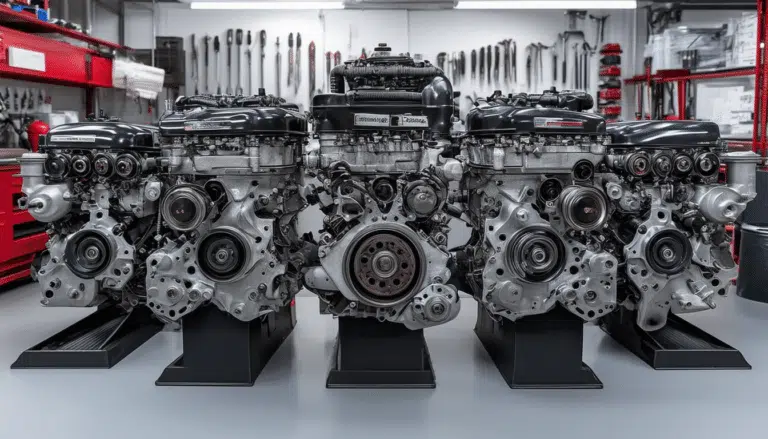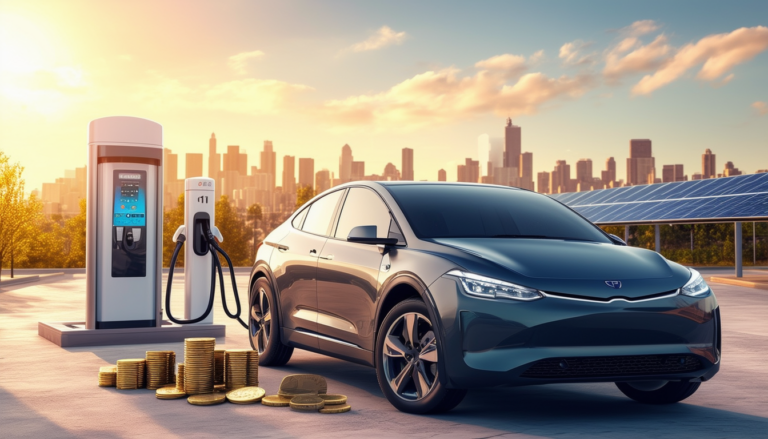Estudies on fuel economy in modern vehicles
Currently, the fuel economy in modern vehicles has become a topic of growing interest and relevance. With the rise in fuel costs and the urgency to address environmental challenges, research in this field focuses on identifying strategies and technologies that improve the energy efficiency of cars. Recent studies demonstrate that certain vehicles achieve optimal performance at higher speeds, while other aspects such as proper maintenance and the choice of sustainable fuels play a crucial role in reducing consumption. These analyses not only inform about the economic impact of fuel usage but also promote a growing environmental awareness in society.
The fuel economy in modern vehicles is a topic of increasing interest, especially in a context where sustainability and energy efficiency are more relevant than ever. This article explores recent studies that analyze the energy performance of contemporary cars and the different strategies and technologies being implemented to optimize fuel consumption.
Improvements in efficiency at high speeds
Recent research has indicated that many vehicles show greater fuel efficiency at higher speeds, challenging previous studies that claimed otherwise. For example, some models achieve better performance at 100 km/h compared to 70 km/h. This phenomenon is due to multiple factors, including aerodynamics and engine resistance, which allow certain vehicles to excel in terms of efficiency at highway speeds.
Factors influencing fuel consumption
The fuel consumption in vehicles is affected by various factors, such as the vehicle’s weight, the condition of the tires, and the quality of the fuel used. Studies carried out in different countries, such as South Africa and Australia, have sought to establish an efficiency factor that can predict consumption based on the energy required to overcome resistance to motion. These predictive models are fundamental to understanding how vehicles behave under various driving conditions.
The role of technology in fuel efficiency
Automotive technology has advanced significantly in recent years, influenced by the need to reduce environmental impact and fuel expenditure. Innovations such as electric engines, advanced injection systems, and hybrid vehicles are revolutionizing the sector. For example, studies show that the use of flex-fuel injection systems can result in a remarkable improvement in engine efficiency, allowing drivers to save on fuel and reduce CO2 emissions.
Environmental impact and sustainability
The relationship between fuel economy and environmental impact is undeniable. Combustion engine vehicles are responsible for a significant part of air pollution. Studies have highlighted that 86% of air pollution in certain cities comes from mobile sources, underscoring the urgency to adopt cleaner and more efficient technologies. The transition to vehicles that use biofuels and electric energy is essential to improve this situation.
Maintenance and its influence on fuel performance
Regular maintenance of vehicles is crucial to maximize fuel efficiency. Practices such as wheel alignment, checking exhaust systems, and engine maintenance can have a significant impact on fuel consumption. A well-maintained engine presents better performance regulation, which translates into long-term savings. These aspects are key to achieving a balance between efficiency and operational costs.
Strategies for reducing fuel expenditure
Implementing a family plan for fuel savings can be an effective strategy. Similarly, there are many methods to reduce consumption, from adopting more efficient driving habits to using apps that optimize routes and decrease expenditure during trips. These actions not only benefit users’ wallets but also the environment by reducing greenhouse gas emissions.
The future of fuel economy
With the projection of increased global automotive fleets in the coming years, improving fuel economy is more important than ever. The International Energy Agency estimates that there is potential for technical improvement that could reach 50% by the year 2030. These improvements are not only feasible but necessary to achieve the Sustainable Development Goals and ensure a cleaner and more sustainable future.
Finally, it is essential to remember that small changes in driving habits and vehicle maintenance have a significant impact on fuel performance. Implementing proactive maintenance is a key strategy for fuel savings, which can translate into significant expenditure reductions both personally and in fleet management.
Understanding these studies and implementing best practices are vital steps towards a future where fuel economy aligns with environmental sustainability and the economic needs of users.
The fuel economy has become an essential topic in the field of mobility due to its direct impact on the environment and sustainability. The advancement of technology has allowed modern vehicles to achieve greater fuel performance, often improving efficiency at higher speeds than previously considered. For example, some studies have shown that certain car models achieve better fuel efficiency at 100 km/h than at 70 km/h, which challenges previous beliefs and highlights the importance of innovation in this field.
Additionally, analyzing fuel consumption in different geographical contexts, such as South Africa and Australia, has allowed for the development of predictive models that provide a deeper understanding of the factors affecting energy efficiency. These studies not only identify patterns but also provide crucial information for designing more effective transportation policies aimed at reducing fuel expenditure and minimizing environmental impact.
The growing concern about climate change has driven renewed interest in more sustainable alternatives, such as biofuels and electric vehicles. The transition to these options not only leads to a decrease in air pollution but also represents an opportunity to promote a greener economic development. Recent studies indicate that the potential for improvement in fuel efficiency could reach up to 50% by 2030, opening an encouraging outlook for the automotive industry.
On the other hand, it is essential to consider the impact of adequate maintenance and technology on fuel economy. Proactive maintenance and the use of advanced systems can significantly optimize fuel performance, allowing vehicle owners to save in the long run. Education on responsible and efficient fuel use is crucial to maximize these benefits, raising awareness of the importance of making sustainable choices.




